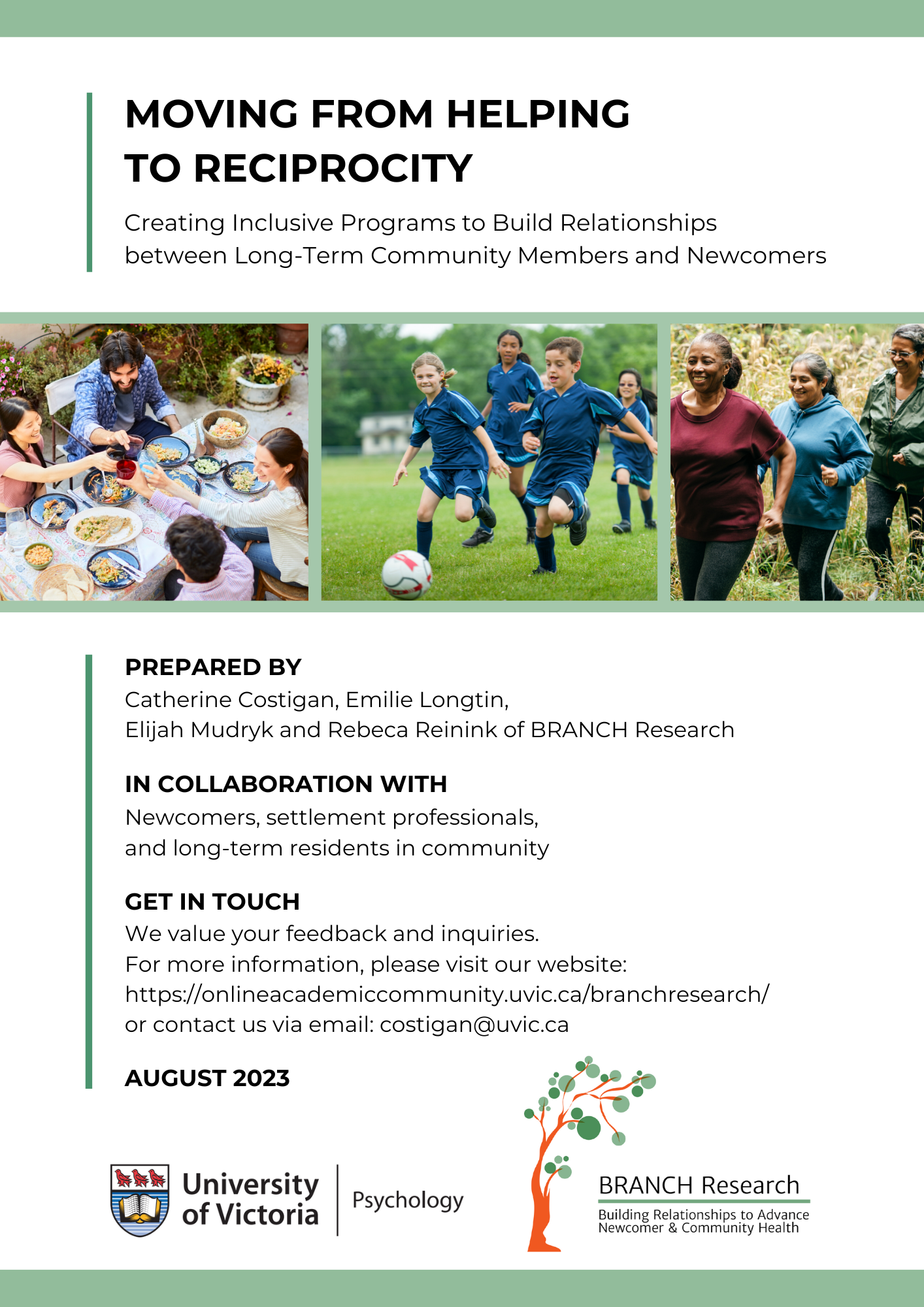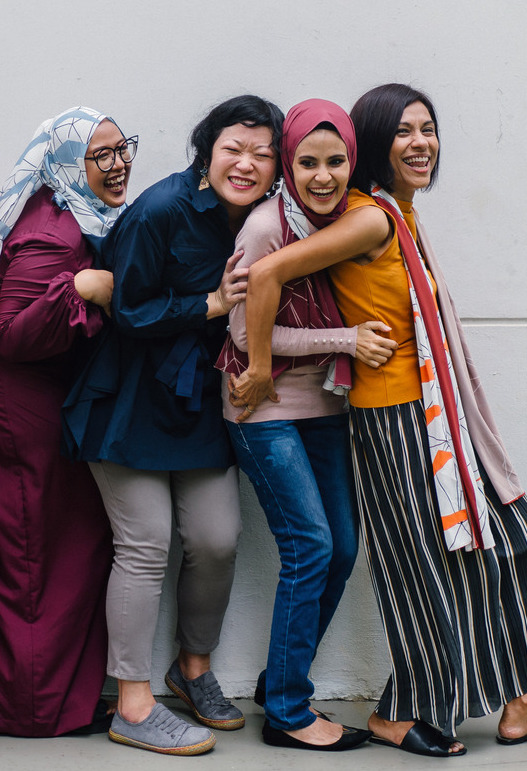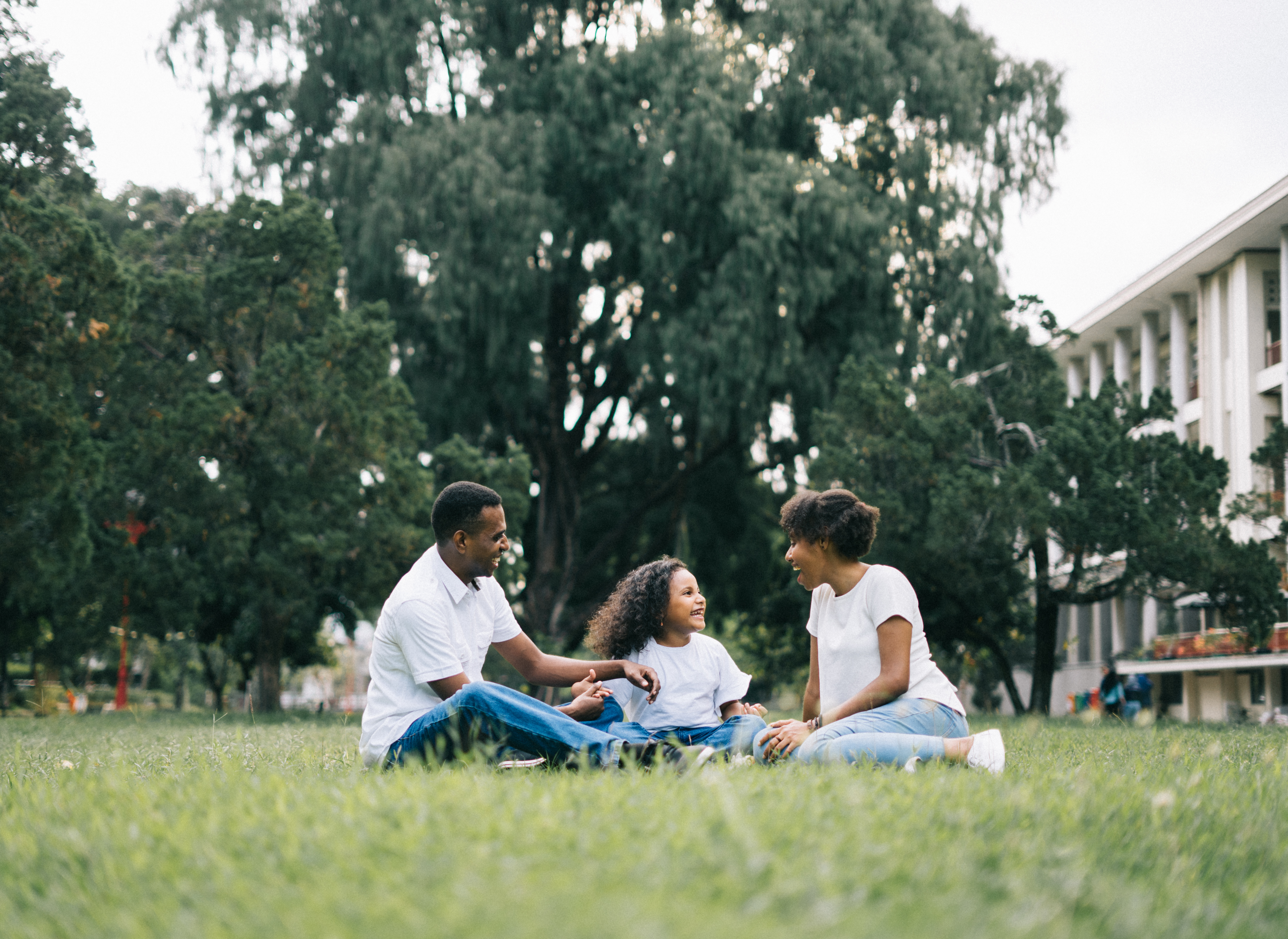

Research Report
We are excited to share our brief report detailing strategies for building inclusive communities between long-term residents and newcomers.
Moving from Helping to Reciprocity:
Creating Inclusive Programs to Build Relationships between Long-Term Community Members and Newcomers
We welcome feedback and inquiries on our work!
Our research team is dedicated to investigating ways of promoting the health and well-being of immigrants and refugees in Canada, with a special focus on family relationships.

Relationships
Our work centers on promoting relationship health with particular attention to individuals with immigrant and refugee backgrounds.
Throughout our work, we aim to recognize the agency and resources of families to live meaningful lives and contribute to society while also recognizing the very real traumas, stressors, and structural barriers that they experience.
Relationships are at the core of our work in many ways:

Families
Strong relationships are important for promoting the mental health of individual family members, young and old. All relationships in the family are important — including parent-child relationships, sibling relationships, and co-parenting/marital/partner relationships.
Individuals who have moved to Canada from other parts of the world, by choice or by necessity, possess significant strengths that help them thrive in a new context. Our work aims to support families to harness these strengths to build and maintain strong family ties, despite significant cultural change and settlement stress.
Social Cohesion
The context in which newcomers settle plays an essential role in promoting or undermining mental health. One branch of our research focuses on understanding how communities promote social cohesion among its members.
An essential aspect of social cohesion is the opportunity for community members to build meaningful and reciprocal relationships across differences (e.g., between individuals with immigrant or refugee backgrounds and long-term members of the community), in order to promote belonging, efficacy, and mental health.
When there is true social cohesion, the uniqueness each person brings to the community is recognized and valued, and social categories such as “immigrant” and “refugee” that risk relegating certain members of the community to a permanent “other” category are not needed.


Community Engagement
We are committed to conducting our research in partnership with others in the community, including social agencies that serve the immigrant and refugee community as well as individuals with immigrant and refugee backgrounds.
The relationships that we form with the community are essential at all phases of the research process, helping us to form meaningful research questions, address the questions with appropriate methods, and share findings in a way that will be useful to a broad range of stakeholders.
Follow us on twitter to keep up to date with current research, interesting stories, and lab updates.
Like our facebook page to see research opportunities, local events, and general lab updates.
Gallery
View pictures of lab members participating in conference presentations, receiving awards, and general fun!
We are here
BRANCH Research is located in the Couples and Families Lab in Cornett Building A148, at the University of Victoria.
BRANCH Research Team
BRANCH Research is housed in the Department of Psychology at the University of Victoria.
Our lab consists of graduate students, honours students, and research assistants.


Do you have any questions about our research projects?
Want to learn more about lab?